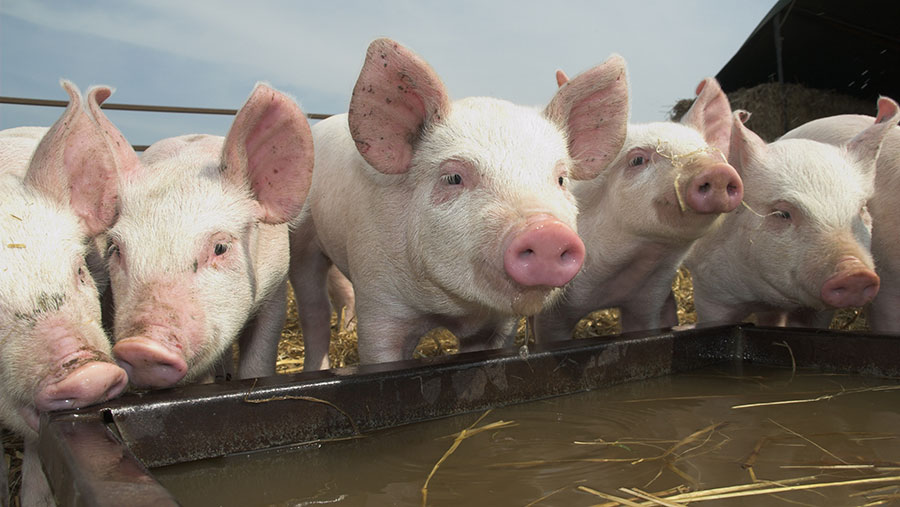Farms urged to share insights as zinc oxide ban nears
 © Gary K Smith/FLPA/imageBROKER/REX/Shutterstock
© Gary K Smith/FLPA/imageBROKER/REX/Shutterstock Pig farms successfully weaning piglets without zinc oxide are being encouraged by veterinarians and AHDB Pork to step forward and share their expertise.
The plea follows a European Medicines Authority Committee on Veterinary Medicinal Products (CVMP) opinion to ban zinc oxide, expected to be accepted by the EU Commission in mid-July.
Should the ban be enforced, the UK pig sector hopes to have a long transition period, with up to ten years being mooted.
Existing stocks of zinc, built up by the companies DSM and Provimi, would have to be depleted, added AHDB Pork senior manager, Stephen Winfield.
See also: Possible zinc oxide ban a massive blow to pig industry
“We are aware that some farmers are successfully weaning pigs without zinc oxide in diets and we are looking to get case studies put together,” he told Farmers Weekly.
“Farmers can remain anonymous. We are trying to prepare strategies should zinc oxide be banned,” he added.
Explaining the ban
Back in January the UK pig sector countered French and Dutch concerns about zinc’s detrimental role in the environment as a heavy metal, stating the small risks outweighed the major health benefits.
It calculated that delaying weaning from 28 to 42 days – one possible alternative to therapeutic zinc oxide – would cost 0.5 litters a sow/year and £156 a sow.
See also: Zinc ban could cost pig farms £156 a sow
“Banning zinc oxide will severely hamper our ability to reduce antimicrobials,” Georgina Crayford, National Pig Association (NPA) senior adviser, told Farmers Weekly.
“The pig industry has done everything it can to highlight the impact a ban would have and now we are rallying round EU member states for support in the hope that the commission vote sees a majority in favour of keeping it.”
Dr Crayford said Scandinavian countries had already pledged to vote to keep the additive, while the main opponents were the Netherlands and France.
“Key countries are Germany and Poland and we understand farmers don’t want to see a ban, but this doesn’t mean their governments won’t ban it.”
What next?
Veterinarian and pig specialist David Burch of Octagon Services said zinc is widely used in other countries and, where it isn’t, the antibiotic colistin is often used – a “drug of last resort”, according to the World Health Organisation.
He told Farmers Weekly that there were several alternatives, but they all had drawbacks (see panel).
“Losing it [zinc] will have a major impact on weaning pigs. I have hardly seen a post-weaning enteritis problem for nearly 20 years on farms using zinc oxide.”
|
Possible alternative |
Issues |
|
Vaccinating for post-weaning enteritis at 18 days old to develop immunity |
Can vaccinate for ETEC E. coli F4 and F18 with a new vaccine being released in May by Elanco. Vaccines are strain specific and more costly |
|
Feeding blood plasma (spray dried porcine plasma)
|
Not allowed under Red Tractor. Ruling goes back to feeding meat and bone meal bans in animal feed due to BSE. Some countries do use it though |
|
Alternative feed additives. Probiotics, prebiotics, plant extracts and acids such as butyric acid |
Questionable efficacy. Classed as feed additives and cannot make therapeutic claims. Not as rigorously trialled and tested as therapeutic products |
|
Delay weaning by two weeks – from four to six weeks old to minimise stress on piglet |
Would cost £156 a sow, costing 0.5 litters a sow/year. Figures from AHDB Pork based on 26.1 piglets a sow/year and a value of £38 a 7kg weaner |
